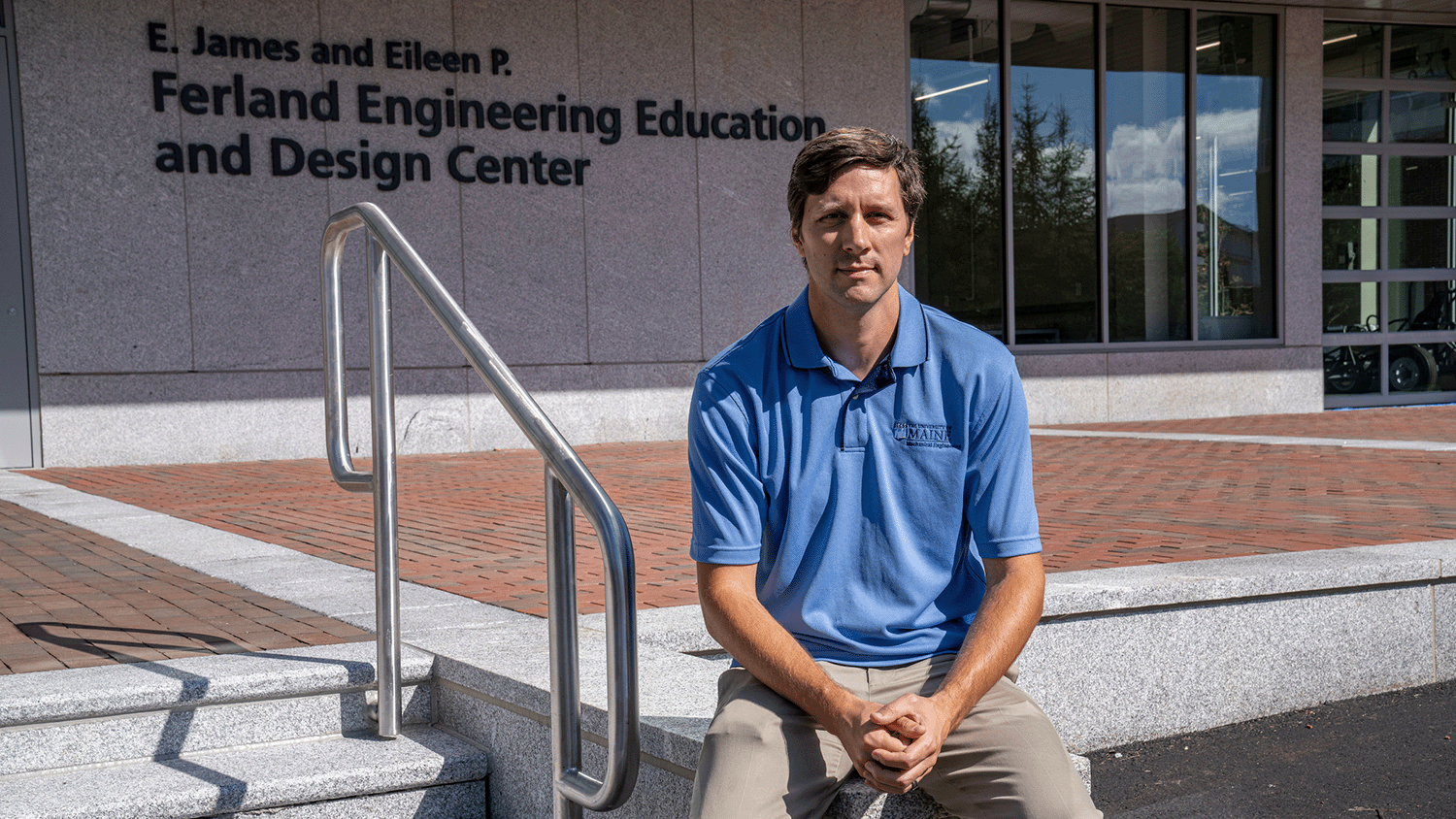
UMaine researchers aim to help decarbonize plastic chemicals industry with new reactor that relies on solar energy
Helping decarbonize the plastic chemicals industry by developing a new reactor that relies on solar energy will be the focus of a Department of Energy (DOE)-funded project led by the University of Maine.
Justin Lapp, a UMaine assistant professor of mechanical engineering, is spearheading the effort to create the novel thermochemical reactor that could eliminate almost all greenhouse gas emissions from the process used to make light olefins, chemicals like ethylene and propylene that serve as precursors to plastic. The DOE awarded $400,000 for the project.
Other researchers involved in the project include Thomas Schwartz, a UMaine associate professor of chemical engineering, and David Hibbitts, an associate professor of chemical engineering at the University of Florida.
Manufacturers burn fossil fuels to heat up catalyst particles used for conducting a chemical process called dehydrogenation that converts paraffins, gaseous compounds like propane derived from natural gas and petroleum, into olefins. The catalyst particles cool from the reaction and need to be reheated to maintain the process, resulting in manufacturers burning fossil fuels for energy to do so.
Rather than keeping particles static, Lapp and his team will develop a novel, lab-scale adiabatic moving bed reactor that can be connected to a falling particle receiver. This will allow the particles, dark ceramic pellets that are a few millimeters in diameter, to be heated and reheated with concentrated solar energy, as opposed to fossil fuels, throughout the conversion process. The new reactor will be able to operate at higher temperatures than existing converters on the market, 600–900 degrees Celsius, and be able to work with existing solar falling particle receivers, Lapp says.
Additionally, researchers will modify the catalyst particles to improve the balance between the solar absorption of the particles in the receiver and the chemical reactivity in the reactor, which should optimize energy consumption.
The project may nearly decarbonize the dehydrogenation process used to create light olefins, an industry that generates more than $325 billion in sales worldwide, and possibly eliminate the need for fossil fuels in other catalytic chemical processes used across the entire chemicals industry, Lapp says.
“This project is just one piece of a big DOE push to convert industries that burn huge amounts of fossil fuels toward using renewables,” Lapp says. “Industry is responsible for 30% of carbon emissions in the U.S., and much of that is burning fossil fuels for processes that just need high temperatures.”
The endeavor also calls for testing multiple existing catalysts to find suitable ones for the reactor, making it more accessible to industry stakeholders. Schwartz may explore modifying available catalysts to meet the needs of the reactor, altering their size, element composition and ratio.
“Catalytic technologies have been used in the petrochemical industry for more than 100 years to enable reactions that would otherwise be infeasible, such as selective dehydrogenation,” Schwartz says. “For this reason, continuing catalyst development will play a crucial role in decarbonization projects.”
The team plans to recruit three graduate students — two from UMaine, one from the University of Florida — and at least one undergraduate to assist with the project.
Lapp directs the Solar Thermal Energy Lab at UMaine, which explores new methods for harnessing solar power for thermal applications and optimizing heat transfer processes for energy conservation. After a two-year slowdown of his research due to the COVID-19 pandemic, Lapp says the DOE-funded project provides him an opportunity to revitalize and reoriente his lab to focus primarily on decarbonizing industries using solar power.
“My hope is that this topic will be a keystone of my research going forward,” Lapp says. “I feel climate change is the current issue that in the long term will have the greatest negative effects on our world. This is what I can do to help as an engineer.”
Contact: Marcus Wolf, 207.581.3721; marcus.wolf@maine.edu
